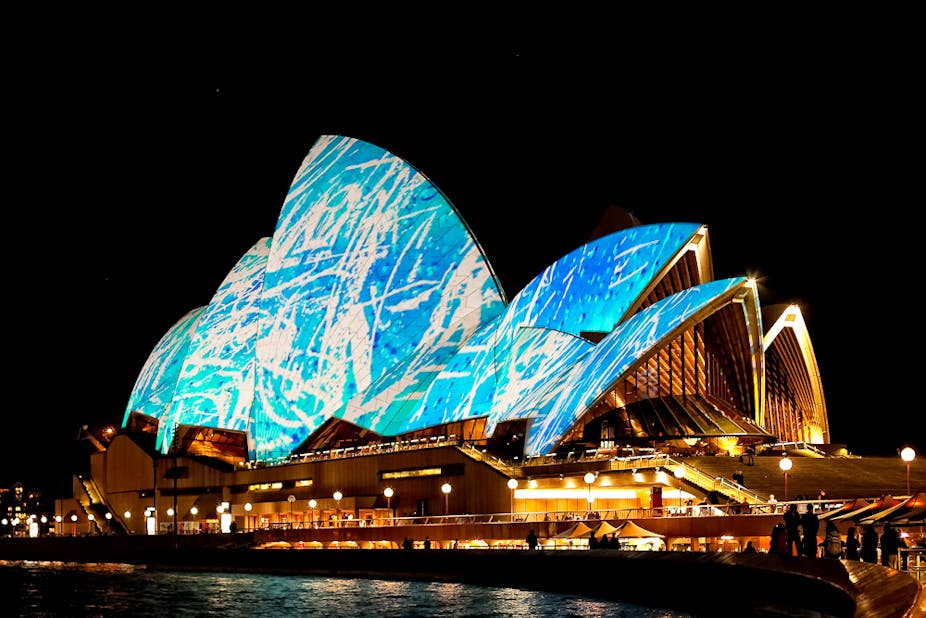Australia has moved up in the world – to seventh place on the 2013/14 Soft Power Survey published in the December/January issue of Monocle magazine.
The Soft Power Survey is conducted yearly by Monocle and the UK-based Institute for Government think tank. It ranks the top 30 countries who “best attract favour from other countries through diplomacy, culture, design, cuisine, sport and beyond”.
Last year, Australia ranked ninth – and its move up the rankings can partially be attributed to the inclusion of sport as a new category.
How to lose soft power
The recent rise might be short-lived. The survey authors warn that the policies of the Abbott Government will cause Australia’s soft power to diminish as it continues to resist change and deny global warming.
The survey authors predict our influence will also diminish because of the government’s opposition to gay marriage.

But the biggest issue that will adversely affect our soft power, according to Monocle, is Australia’s asylum policy:
There’s no getting away from it; it stinks. An island nation where the vast majority of the inhabitants are descended from boat people appears to have a problem with anyone else following in their footsteps.
Australia’s Foreign Minister Julie Bishop defends the policy in the magazine saying:
It’s not correct that we have a harsh immigration system, our country is an immigrant country and we’re very proud of that.
So what is keeping us in the top-ten?
Primarily, it’s our cities and the fact that we “do symbols well”.
Despite its fraught early history, Sydney’s Danish-designed icon is still accruing soft power points.
The Sydney Opera House, now 40 years old, is instantly recognisable – and a bold and brilliant piece of architecture too.
We have talented chefs and baristas that make Australia a place that people want to visit. Australia’s attractiveness is also due to a “charm and vibrancy that cannot just be boiled down to beaches and nightlife”.
How soft power is calculated
The Institute of Government and Monocle magazine first published the Soft Power Index four years ago using a broad set of statistical and subjective metrics.
The index draws on the concept of “soft power” developed by Harvard professor Joseph Nye who argued that that nations exert power either by hard military power, economic power or soft cultural power. He pointed to three sources of soft power:
- political values
- foreign policy
- culture
Monocle looked at diverse indicators of soft power including number of embassies, foreign students, rankings of universities, number of think tanks and overseas missions, high culture and pop cultural exports, number of foreign correspondents, government accountability, and income equality.

This quantitative data accounts for 70% of the total weighting and the remaining 30% is based on subjective categories assessed by an expert panel.
It’s worth noting that the survey was compiled before the current spying scandal emerged with The Guardian and ABC/Australia Network’s publication of whistleblower Edward Snowden’s leaked documents.
Will those revelations have an impact on Australia’s soft power diplomacy? Yes.
Diplomacy is one of five major categories considered in the survey but it also contains sub-indices that cover overseas aid, environmental awareness and action as well as openness to asylum seekers – so Australia is already on the nose there.
Soft power and public broadcasting
Soft power icons such as public broadcasters and their reach feature in the survey. France was praised for the role of France 24 and Radio France International networks which “both provide an alternative to the Anglophone-dominated international news agenda”.
Conversely, the UK was warned that “the ongoing effect of BBC cuts could affect its soft power in next year’s rankings”.
The publication of the Snowden documents does raise questions about the role of the ABC’s international soft-power vehicle, The Australia Network. Did it undermine the national interest to publishing the spying allegations straight into Indonesia?
The Australia Network could not have not published the spying story – for if it did self-censor in the national interest, its power as a vehicle of Australian culture and freedom of speech would surely have diminished. It would instead be seen as a mouthpiece of the government.
Such control would put Australia Network in the same league as China’s CCTV, which is fighting its totalitarian image, expanding its operations and seeking to employ more Western journalists.
China ranks number 20 in the survey and the authors note that “Xinhua has ousted Reuters as the wire service of choice for many of Africa’s biggest newspapers, while CCTV has cunningly bought credibility by hiring the best local journalists”.
Who are the other soft power players?

The departure of Silvio Berlusconi from politics is one of the factors credited with putting Italy into the tenth spot on the Monocle list. Canada’s ranking rose too, to number nine – with the help of exports such as trains, singers and actors; and Switzerland was ranked eighth after Australia.
At number six is Sweden, a country that excels where Australia is failing. The survey authors note:
This is a country that shames its neighbours when it comes to the thorny issue of asylum. Sweden’s stance is something of which it can be proud.
Japan sits fifth on the list and France fourth.
At three is the USA, down from two and affected by the waning of “the rock-star appeal of Barack Obama … and the suicide caucus within the Republican Party”. At two, down from the top spot, where it basked in the glow of the London Olympics in 2012, is the United Kingdom.
And at number one? Germany – proving that soft power is just as effective a weapon as the hard power it exerted in its past.

